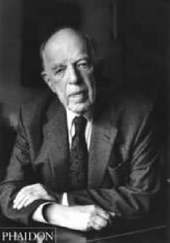
|
The Preference for the Primitive: Episodes in the History of Western Taste and Art
Hardback
Main Details
| Title |
The Preference for the Primitive: Episodes in the History of Western Taste and Art
|
| Authors and Contributors |
By (author) Leonie Gombrich
|
| Physical Properties |
| Format:Hardback | | Pages:324 | | Dimensions(mm): Height 245,Width 172 |
|
| Category/Genre | Theory of art
Art styles not defined by date |
|---|
| ISBN/Barcode |
9780714841540
|
| Classifications | Dewey:709 |
|---|
| Audience | |
|---|
|
Publishing Details |
| Publisher |
Phaidon Press Ltd
|
| Imprint |
Phaidon Press Ltd
|
| Publication Date |
8 August 2002 |
| Publication Country |
United Kingdom
|
Description
This is a documentary study of a recurring phenomenon in the history of changing taste in the visual arts, namely the feeling that older and less sophisticated or "primitive" works are somehow morally and aesthetically superior to later works that have become refined, soft and decadent. Gombrich traces the existence of such feelings right back to classical antiquity, and links them with a crucial psychological observation made by Cicero to the effect that over-indulgence of the senses leads to a feeling of disgust. He also demonstrates the importance of the profoundly influential metaphor, first articulated in antiquity and taken over by Vasari, that compares the history of art to the growth of an organism: like a living organism, art is born and grown to maturity (and therefore perfection), then decays and finally dies. Successive generations of artists and critics, believing the art of their own time to be past maturity, have interpreted the smooth refinement and sensual appeal of contemporary works as symptoms of decline and corruption, and have come to admire earlier works, despite their "immaturity", as possessing superior qualities of sincerity, innocence and rugged strength. With the advent of modernism at the turn of the 20th century this admiration took a radically regressive new twist as artists turned their backs on tradition altogether and found inspiration in the art of exotic cultures and in the works of children and the insane. This book presents a closely argued narrative that documents the role of authors, critics and artists in shaping and changing opinion. After reviewing the classical authors whose writings largely set the terms of the debate, Gombrich then charts its progress from its revival in the 18th century, documenting the often subtle shifts of taste and judgement that frequently focus on the pivotal role of Raphael as a touchstone in the history of taste. In the final chapters he turns to the revolutinary primitivism of the 20th century, to much of which he has himself been an eyewitness.
Author Biography
Born in Vienna in 1909, Professor Sir Ernst Gombrich, OM, CBE, was one of the greatest of a remarkable generation of art historians. Joining the staff of the Warburg Institute in London in 1936, he became its director from 1959 to 1976. He was the author of The Story of Art, Art and Illusion, The Sense of Order and 11 volumes of collected essays and reviews, all published by Phaidon. Sadly, Professor Gombrich died in November 2001, having already completed the writing and revision of the text, and having made the final selection of illustrations. It has therefore been possible to proceed with the final stages of making the book fully in accord with the author's wishes, and it is now being published as a fitting tribute to one of the greatest scholars of all time.
Reviews'The great strength of this book is its historical sweep. - of interest to specialists and general readers alike' Colin Rhodes, Loughborough University, The Burlington Magazine 'a masterpiece of skilful discourse' Nigel Spivey, The Daily Telegraph 'Gombrich is as usual masterly and vastly erudite' Martin Gayford, The Sunday Telegraph 'Gombrich brings his massive learning to bear on a very interesting set of questions.' The Spectator 'Gombrich remains a giant of art history who tried to demystify the processes by which art is made. If Winckelmann yearned for 'noble simplicity' in art, and if Wackenroder preached 'pious simplicity', then Gombrich can be regarded as the High Priest of 'rational simplicity'.' James Hall, Times Literary Supplement 'Throughout, Gombrich's account is supported by his easy familiarity with the writings of philosophers and aestheticians, of anthropologists and psychologists, but in the end what gives his approach such a rich tension is the fact that he remained fundamentally and unfashionably committed to the idea that an increase in mimetic skill represented a form of progress, and that the term primitive did not need to be hedged about with guilt-wracked inverted commas.' Apollo 'Has there been an individual who could match Gombrich's gargantuan grasp of classical sources, the sheer scope of his reading? No. - The Preference for the Primitive - is lively and can be assimilated by artists, art historians and general readers alike.' Modern Painters 'The book is a remarkable one, demonstrating in full measure Gombrich's extraordinary erudition - acts as a convenient summary of many of the themes and issues to which he devoted a long and exceptionally distinguished career' Charles Saumarez Smith, Director, National Gallery, London, Literary Review ' - take(s) on just about the weightiest and most controversial subject currently available for art-historical picking-over. For Gombrich to delay until his final book before taking on the appetite for perfectionism is akin to Michelangelo waiting until he was 92 before embarking upon the Sistine ceiling.' Waldemar Januszczak, The Sunday Times
|